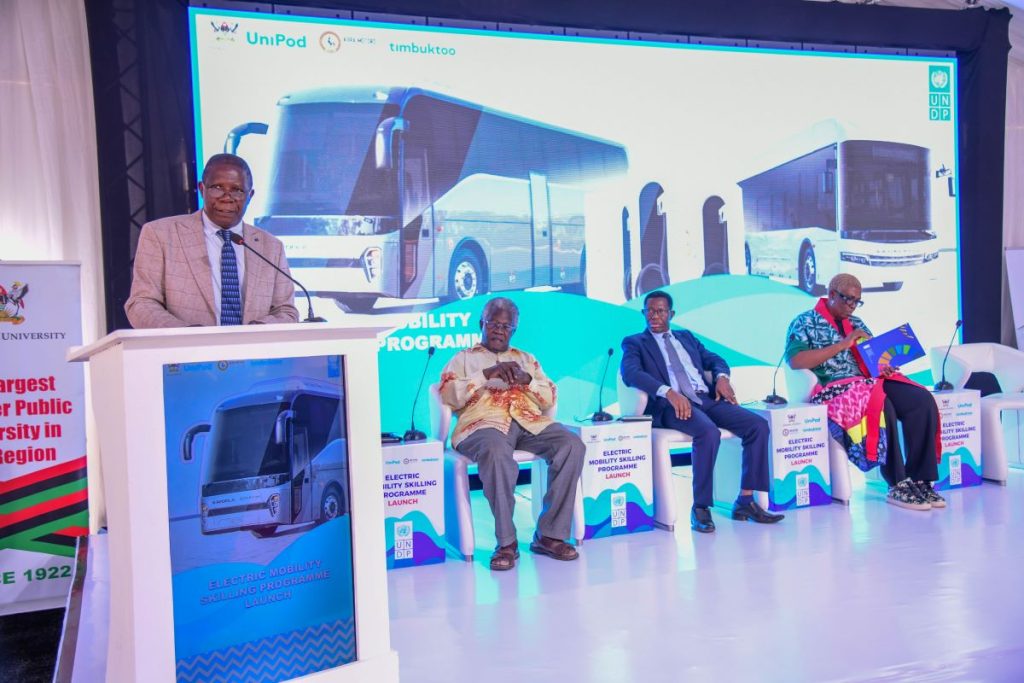On 22nd October 2024, Makerere University Innovation Pod, in partnership with Kiira Motors Corporation, and the United Nations Development Programme in Uganda, launched a skilling program designed to equip students with expertise in electric mobility and related technologies for industrial application.
The launch team consisted of the Executive Chairman of Kiira Motors Corporation (KMC) Prof. Tickodri-Togboa, the United Nations Development Programme (UNDP) Resident Representative Ms. Nwanne Vwede-Obahor, and Prof. Buyinza Mukadasi (Acting Deputy Vice Chancellor Academic Affairs) who represented the Vice Chancellor of Makerere University, Prof. Barnabas Nawangwe, Prof. Gorettie Nabanoga, Chairperson of the Steering Committee of the Makerere University Innovation Pod (Mak-UniPod) and Dr. Peter Turyakira, the Acting Manager of Makerere University Innovation Pod (Mak-UniPod).
This strategic direction of building the required pool of young people to drive Uganda’s electric mobility such as production of electric cars targets Makerere University students who are not only excelling in the academics, but also interested in innovation and development.
“When I heard about this project, I thought about this innovation. I realized it comes with so many opportunities starting from employing many people, but also helping in the world agenda in transiting to green energy. When the call was shared, I thought I could grab this opportunity and also contribute to the sector that is seemingly a virgin one,” remarked Twinomujuni Mutunji, a student selected from the Bachelor of Electrical Engineering program.

The first cohort consists of a total of 25 students selected from Electrical, Biomedical, Software, Mechanical, Computer Engineering, and Bachelor of Science in Physics courses. Of the selected students, 12 are female and 13 are male. They were selected in a competitive process where only those with grades in the first and second upper classes were subjected to interviews and the top 25 were subsequently enrolled.
The program’s main objectives include providing participants with foundational knowledge in electric vehicle technology, renewable energy systems, battery cell technology, smart grid systems, and electric vehicle powertrains. It also emphasizes the development of practical skills through hands-on training and project-based learning, enabling students to apply theoretical concepts to real-world scenarios.
Additional goals of the initiative include promoting innovation and problem-solving by encouraging participants to explore solutions to challenges in clean energy technologies. It also seeks to prepare students for careers in the electric vehicle industry and its related sectors.